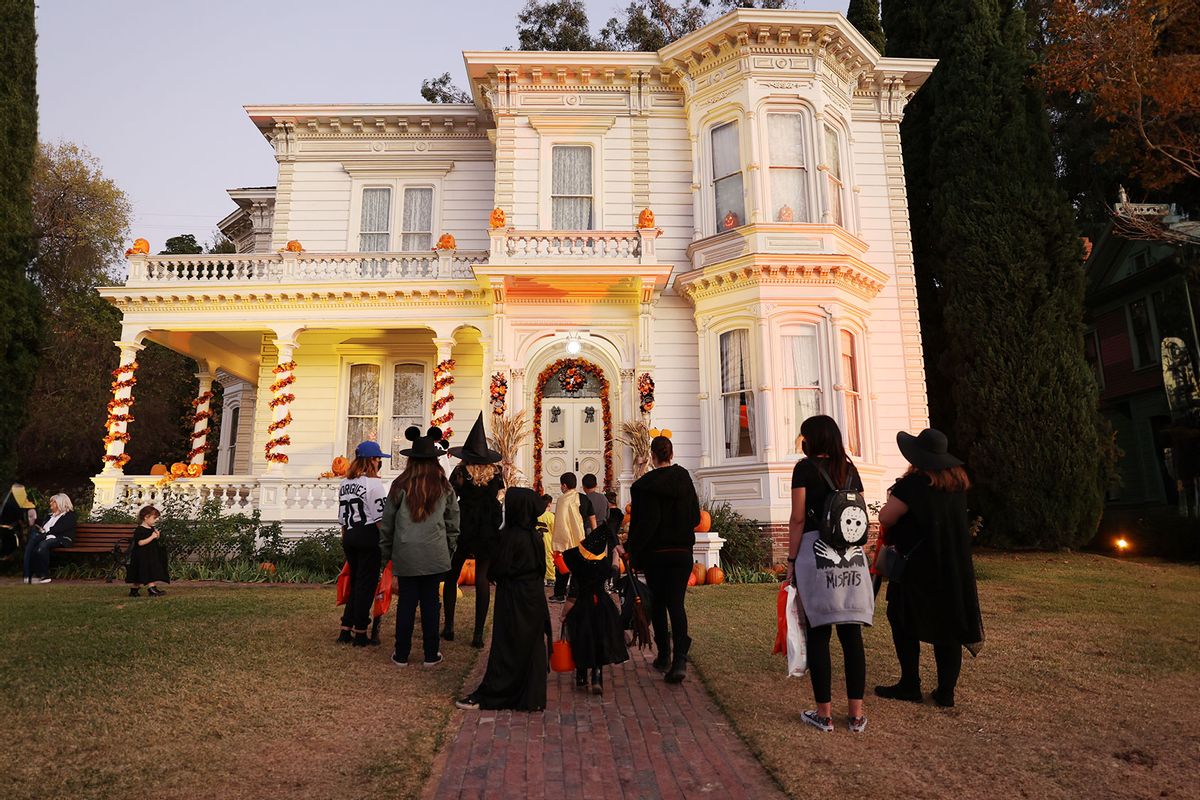If I had to recall when I went trick-or-treating for the very first time, I’d say it was probably in the second grade. I may not remember much from that night, but I do vividly remember my costume of choice — Spiderella, a sort-of spider witch who donned a weblike headpiece. I also remember abandoning my pumpkin basket for a hefty pillow case prior to embarking on a candy-filled excursion.
Ever since then, I’ve always gone trick-or-treating. But by the time I was around 13 or 14 years old, I called it quits on the Halloween tradition. It wasn’t a decision made out of force. My parents never forbade me from seeking a sugar high while in costume. Nor was it a decision made out of embarrassment. My friends never deemed trick-or-treating “uncool” or “dorky.” Rather, it was just a consequence of societal norms. Something about trick-or-treating as a teen, who was just a few years away from legal adulthood, felt…wrong. Even selfish, as if I was robbing little kids of their youth — and, of course, of valuable cavity-causing treats.
That’s why it came as a major surprise when I recently came across several online posts advocating for the practice of adult trick-or-treating. Basically, adults go out in costume and collect candy door-to-door. Some trick-or-treaters go out in groups while others prefer to go solo.
I’ll be honest, if an adult (or group of adults) showed up at my doorstep, shouting “trick-or-treat!” and eagerly waiting for candy to be given to them, I’d probably shut the door on them. Mainly because it’s a bit jarring and, frankly, unsettling. Even the thought of adults digging into a bowl of candy, choosing which ones are worth taking home and which ones aren’t is pretty bizarre to fathom.
Perhaps that makes me sound judgmental and close-minded. And maybe I am indeed both those things. However, my stance on trick-or-treating is pretty firm: let the traditional Halloween custom be reserved just for the kids (yes, that includes teens too).
Naysayers argue that adult trick-or-treating doesn’t deserve all the hate it gets because it’s purely wholesome. After all, adults “are happy, dressed up, and going door to door for candy,” wrote one Redditor. So if they want to take part in a harmless activity that brings them joy, why stop them from doing so?
“At least they are not out doing drugs, committing crimes, etc,” they added. “Let the adults have fun too and let them gather candy as well. Adulting sucks and being able to ‘act childish’ should be allowed and not frowned upon.”
Many of us can agree that being an adult is pretty darn hard. And while getting old and enjoying more independence comes with its perks, it also comes with its fair share of downsides: more rules, responsibilities and expectations. When we enter adulthood, we essentially sign an unspoken contract that dictates what we can and can’t do, along with what is and isn’t acceptable. I don’t say that from a place of elitism. But some activities, which we once enjoyed as a child, are a bit too over-the-top for us to participate in as adults. Long gone are the days spent frolicking around at the local playground. Long gone are the days spent manning a lemonade stand amid the sweltering heat of summer. And long gone are the nights spent trick-or-treating.
We need your help to stay independent
In recent years, the concept of tapping into one's inner child has garnered popularity across social media. “Hashtags like #innerchildhealing and #innerchildlove have been viewed billions of times on TikTok, with some people sharing healing activities and others describing conversations with their younger selves,” wrote Time magazine’s Angela Haupt. The concept isn’t new. In fact, psychologist Carl Jung is credited with coining the term about 100 years ago, “and research has long suggested that the quality of our childhood relates to later-in-life outcomes,” Haupt added.
That being said, many adults never had the opportunity to go trick-or-treating amid their childhood. And now that they have more ownership over their lives, they’re seizing the opportunity to partake in a longstanding Halloween activity. It’s really hard to deny someone that sense of happiness. And it’s really hard to say that what they’re doing is wrong. However, the cold hard truth is that we can’t enjoy everything we weren’t able to experience as children. Some things are simply meant to be enjoyed in the past, like trick-or-treating.
Want more great food writing and recipes? Subscribe to Salon Food's newsletter, The Bite.
Although there’s no specific age restrictions nationally for trick-or-treating, a few cities do have certain guidelines on who can go out and seek candy from their neighbors. Since 2008, Belleville, Illinois, has placed a Halloween ordinance that requires trick-or-treaters to be 12 years of age or younger. Trick-or-treating outside of that age range is considered "Halloween solicitation" and could lead to a fine of up to $1,000, according to NBC 5 Chicago. Several other cities in the U.S., including ones in Virginia and Maryland also have similar age requirements.
Amid a ruthless pandemic, it became incredibly difficult to simply exist as a person. Those difficulties were arguably more pronounced for younger folks, who were stripped of the activities we once took for granted. Classrooms became fully virtual and basic social interactions either became virtual or were done so with barriers (i.e. masks) in place. Now that society has eased up on the COVID restrictions and living has become slightly less dangerous, it’s only fair that children be able to enjoy a longstanding Halloween tradition to its fullest.
Trick-or-treating was always for the children. Let’s keep it that way.



Shares